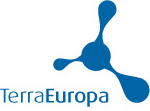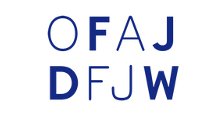 Terra Europe
Terra Europe
A network for Europe
To achieve its goals TerraEuropa built a network of partners and students for whom the European integration process is also important.
Genshagen Foundation
Since its inception, the Genshagen Foundation has been a place for encounter and dialogue between art, culture, politics, economy, science and media. The declared aim of the organisation is to promote Europe in its cultural diversity, its political action, its social cohesion and its economic development. Therefore, the Foundation is committed to the expansion of cross-border networks, transnational debates and projects that aim to give new impetus to the construction of Europe. Serving as a link between civil society and the state, the foundation Genshagen operates in the work areas of "Art and Cultural Exchange in Europe" and "European Dialogue - thinking politically about Europe." The focus of the Foundation's work, the dialogue between Germany, France and Poland - the countries of the "Weimar Triangle" - which was launched in 1991 by Foreign Ministers: Hans-Dietrich Genscher, Roland Dumas and Krzysztof Skubiszewski. Also, as partner of TerraEuropa, the Genshagen Foundation has been advocating, since the inception of the project, for the promotion of the European idea.
The foundation Genshagen has emerged from the Brandenburg Institute for German-French cooperation in Europe, which was founded in 1993.The foundation Genshagen is located in a castle south of Berlin, its benefactors are: the Federal Government Commissioner for Culture and Media and the state of Brandenburg.
Sciences Po
Sciences Po is one of the Grandes Écoles in France with rich-traditions. In the field of social sciences, the Paris Institute of Political Studies is one of the most prestigious in the world. Applicants who pass through a strict selection process, may complete their Bachelor and Master degrees in subjects such as politics, economics, law, journalism, marketing, management or urban planning and become part of an elite and belong among such people like: Christian Dior and Marcel Proust, Jacques Chirac and Francois Mitterrand.
Only one hundred kilometres away from the German border lays the Franco-German European Campus of Sciences Po Nancy, founded in 2000. Most of them come from Germany and France. The coursework is interdisciplinary and is filled with four semesters of lectures and seminars in English, French and German in the areas of political science, economics, history, law and sociology. In their third year students study at one of more than 400 partner universities worldwide, in a company or in a non-governmental organisation abroad. After completed Bachelor, a student has a possibility to enrol at one of the master programmes offered by Sciences Po Paris at the main campus in Paris.
Otto-Suhr-Institute for Political Science at the Free University of Berlin
The Otto-Suhr-Institute (OSI) at the Free University of Berlin is the cradle and the largest institution of political science research and teaching in Germany.
The versatile research and teaching institution emerged from the German University of Politics, which was founded in 1920 and after a took over by Nazis, re-opened in 1949 under the direction of Otto Suhr, who subsequently became a mayor of Berlin. In 1959, the Institute was incorporated under the name of its founder by the Free University.
With its research interests in such fields like: area studies, international relations and environmental research, the Otto-Suhr-Institute enjoys international recognition. The Bachelor and the Master of Arts in political science can be acquired here, as well as a master degree in the fields of environmental management or international relations. A close and three decades old cooperation with Sciences Po allows students today to earn a Franco-German double masters with a focus in international relations or European politics. In addition, in cooperation with the Ecole des Hautes Etudes Commerciales (HEC), the school offers a second double master in "Public Policy & Management," which allows for not only a binational, but also an interdisciplinary education at a high level.
German-French Youth Office (DFJW)
Founded in 1963 in the wake of the Elysée Treaty, the German-French Youth Office (DFJW) is at the service of cooperation and friendship between France and Germany. The German-French Youth Office is committed to strengthening the links between young people of both countries and to deepening of their understanding of each other.
The organisation is based in Berlin and Paris. The DFJW promotes transnational dialogue through student exchanges, language exchange programmes and scholarships for intensive language courses as well as through education and training opportunities for intercultural learning. Since 1963 more than eight million young French and Germans took part in one of around 300,000 exchange programmes. The independent international organisation is financed in equal parts by the German and French government.



